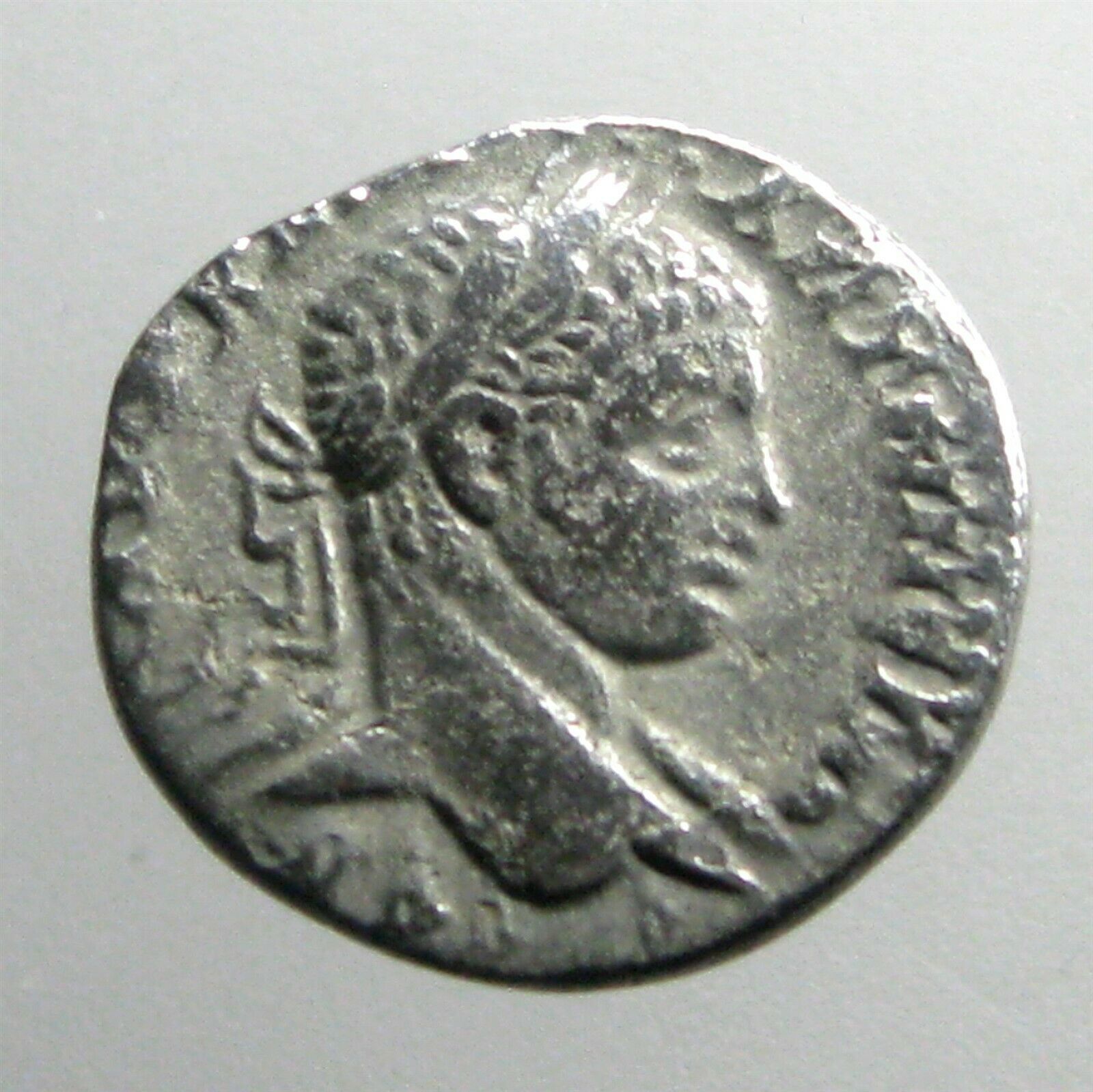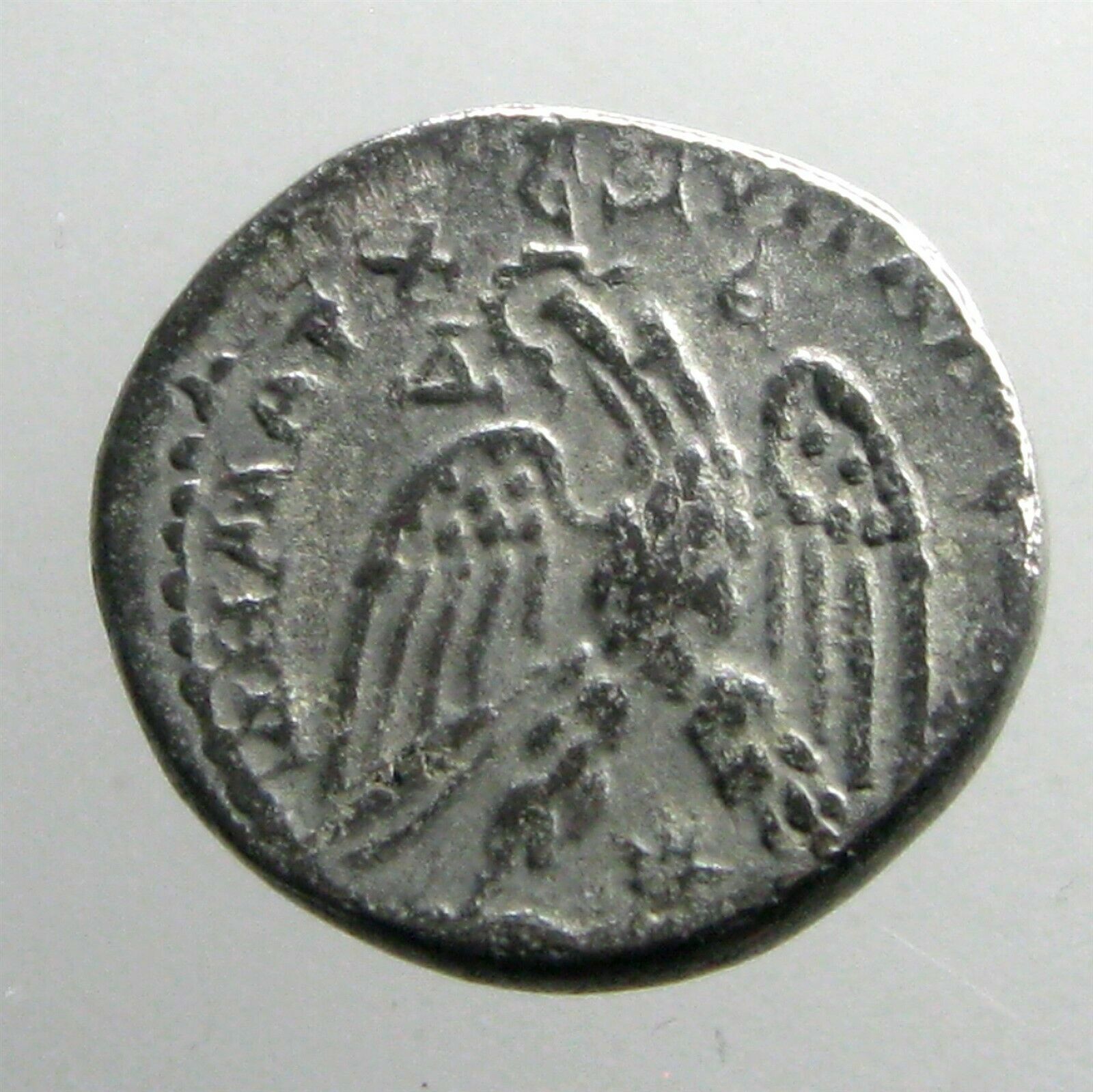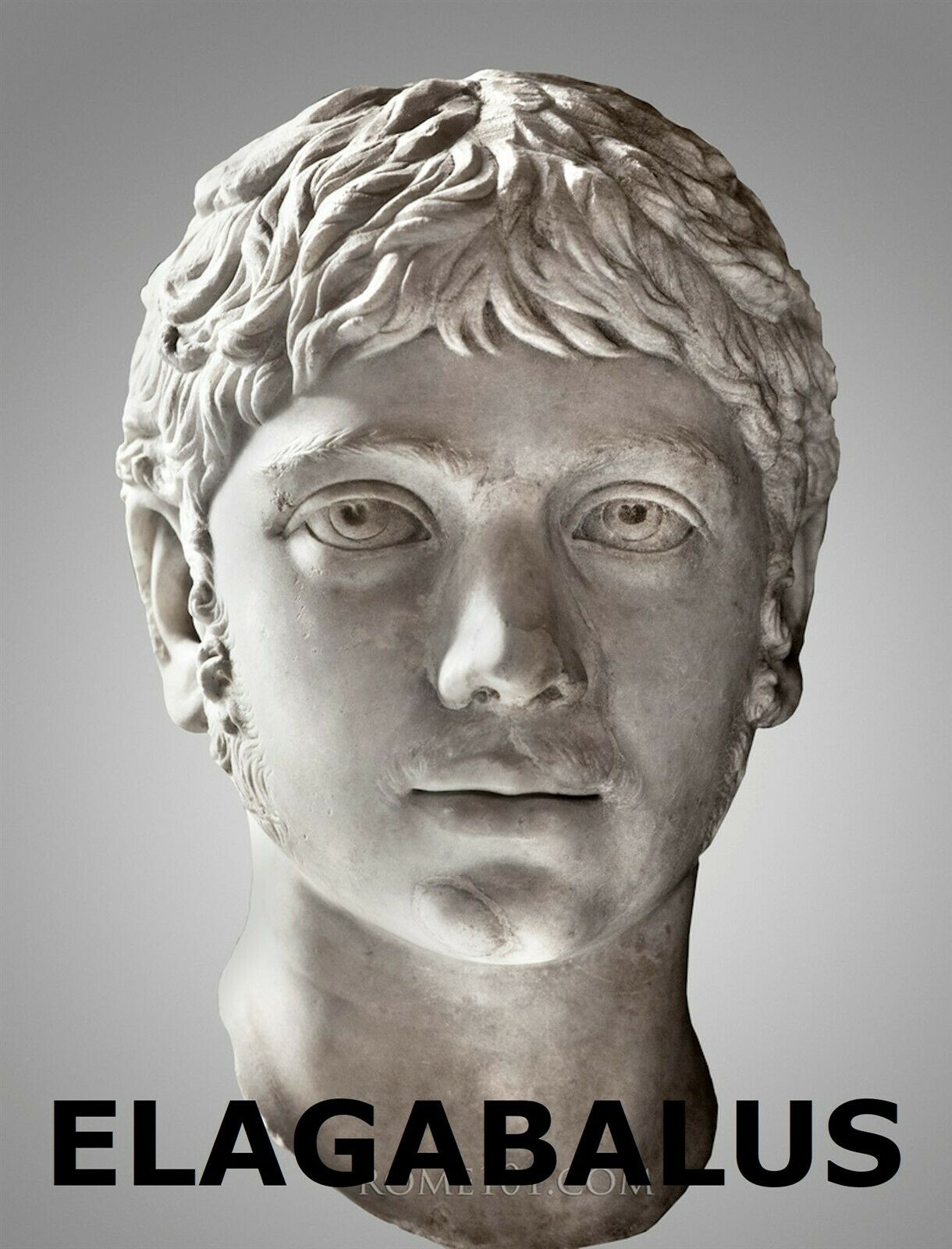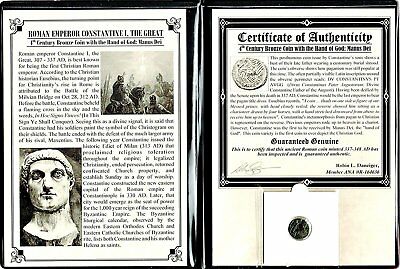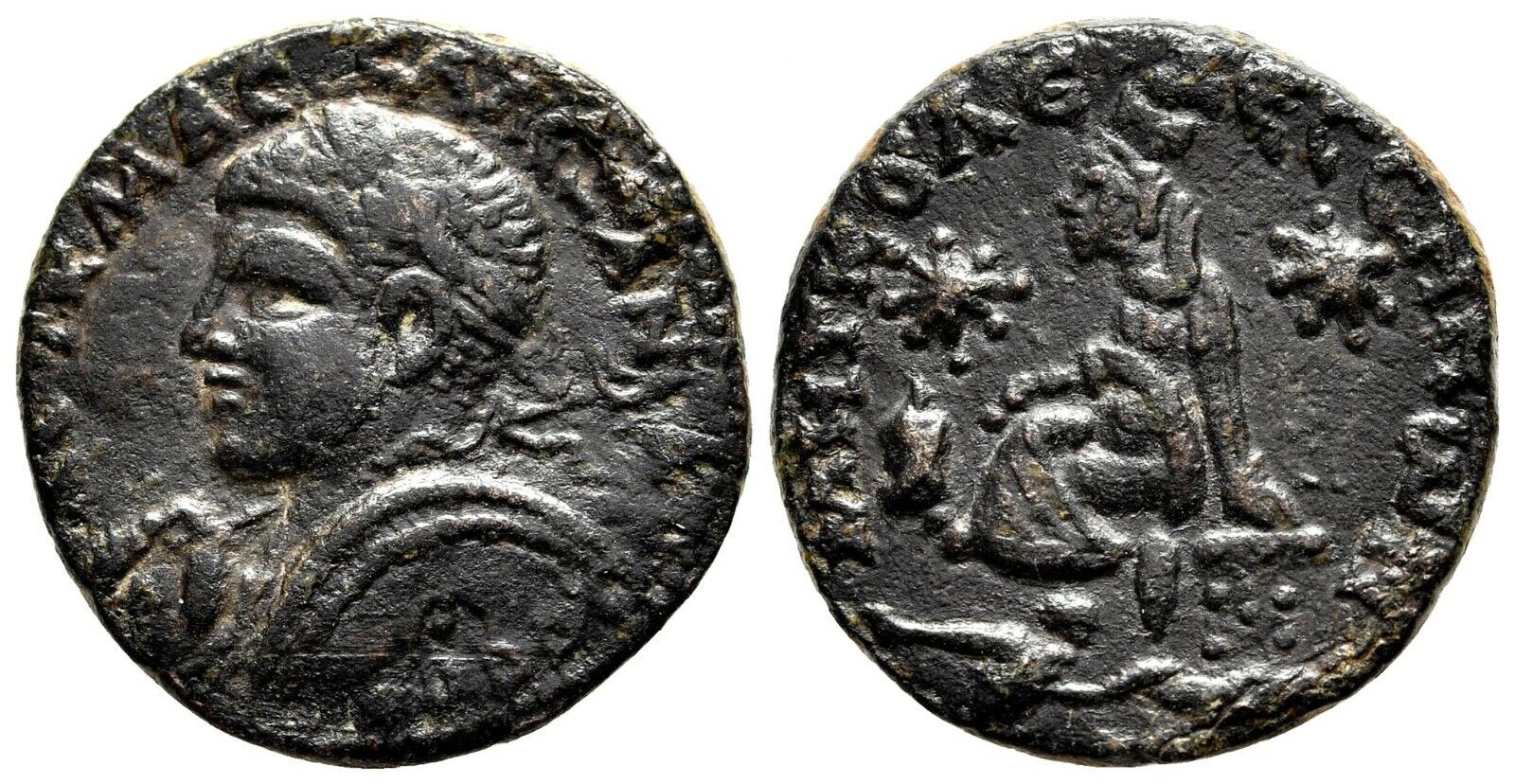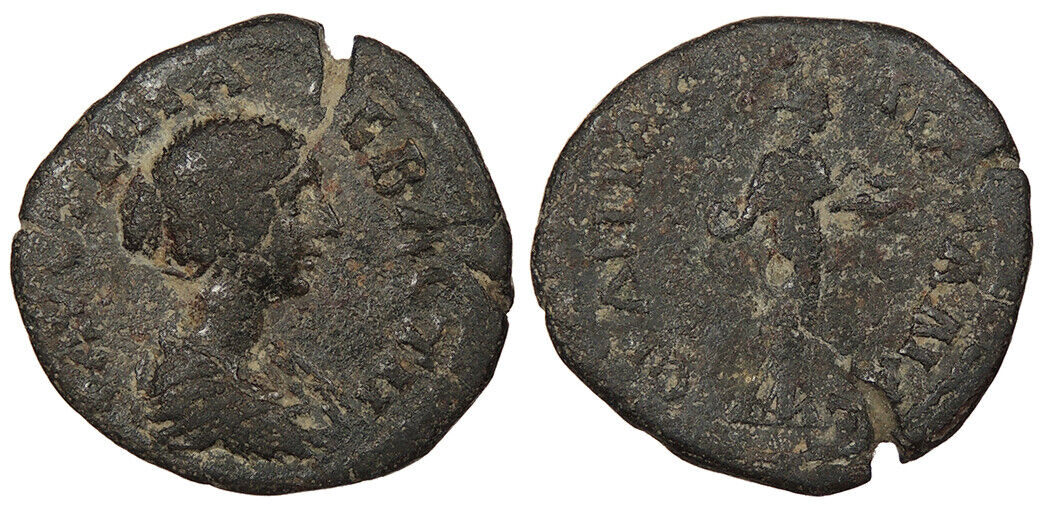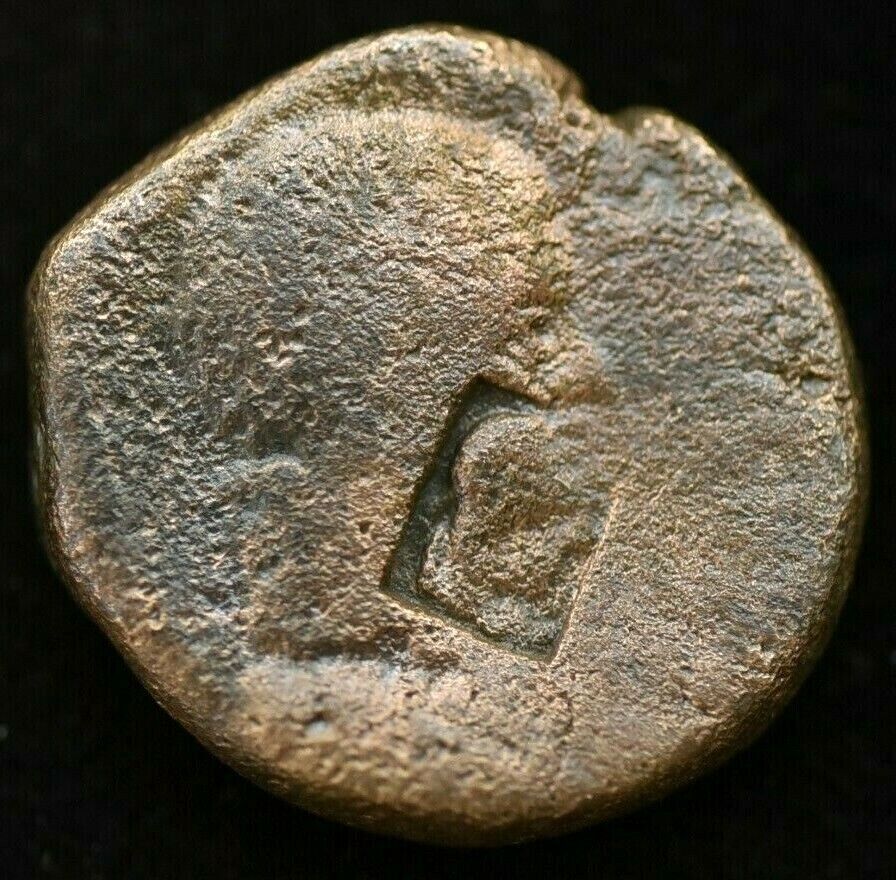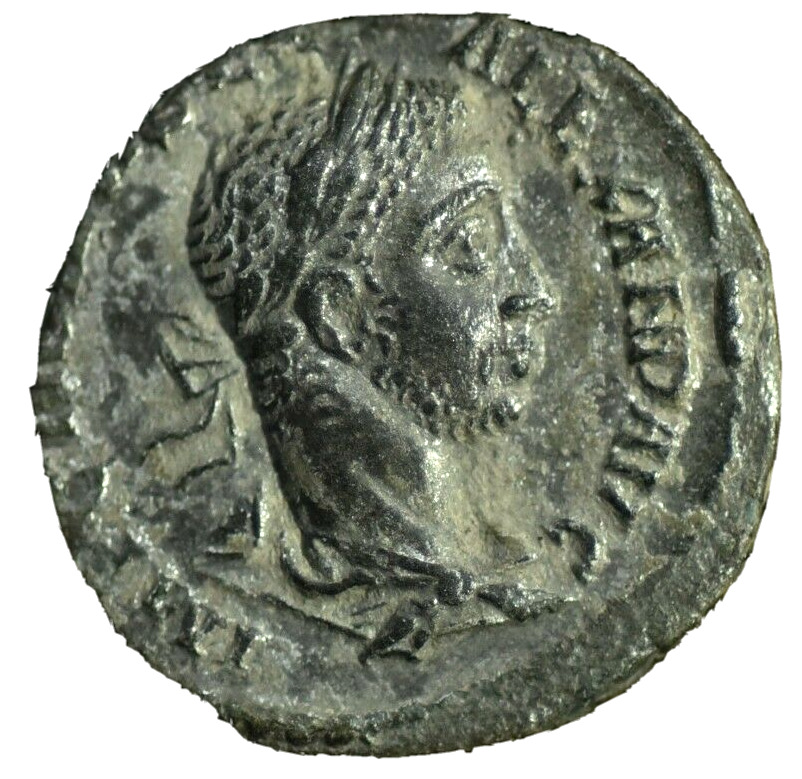-40%
ELAGABALUS SILVER TETRADRACHM_____Antioch ____KILLED HIS POLITICAL ENEMIES
$ 12.34
- Description
- Size Guide
Description
20D49FRASCATIUS ANCIENTS
A BEAUTIFUL ROMAN PROVINCIAL SILVER TETRADRACHM OF ELAGABALUS ( CAESAR MARCUS AURELIUS ANTONINUS AUGUSTUS) MINTED IN ANTIOCH SYRIA FROM 218 - 222 AD.
Elagabalus killed many of his political enemies
THE SIZE IS 25.5 MM AND 12.08 GRAMS.
OBVERSE – Laureate bust right, slight drapery
REVERSE – Eagle standing facing on ground line. head left, with wings displayed, holding wreath in beak; star between legs
EMPEROR
As emperor, Varius Avitus became known by the Latinized version of the name of his Syrian god El-Gabal. Elagabalus also established his god as the principal one of the empire. He further alienated Rome by taking honors upon himself before they had been awarded him -- including substituting his name for that of Macrinius as consul.
Herodian, Dio Cassius, Aelius Lampridius and Gibbon have written about Elagabalus' femininity, bisexuality, transvestism, and forcing a vestal virgin to break vows that were so solemn any virgin found to have violated them was buried alive. He appears to have worked as a prostitute and may have sought the original transgendering operation. If so, he didn't succeed.
Although Elagabalus killed many of his political enemies, especially supporters of Macrinius, he wasn't a sadist who tortured and put an inordinate number of people to death. He was an attractive, hormonally charged teen with absolute power, the high priest of an exotic god and a Roman emperor from Syria who imposed his eastern customs on Rome.
Ultimately, like most of the emperors of the period, Elagabalus was killed by his soldiers, after less than four years in power. He was 17. His first cousin Alexander Severus, also from Emesa, Syria, succeeded him.
IMPERIAL ROME
Imperial Rome was the post-Republican period of the ancient Roman civilization, characterized by an autocratic form of government and large territorial holdings around the Mediterranean in Europe, Africa, and Asia. The 500-year-old Roman Republic, which preceded it, had been destabilized through a series of civil wars. Several events marked the transition from Republic to Empire, including Julius Caesar's appointment as perpetual dictator (44 BC); the Battle of Actium; and the granting of the honorific Augustus to Octavian by the Roman Senate .
The first two centuries of the Empire were a period of unprecedented stability and prosperity known as the Pax Romana ("Roman Peace"). It reached its greatest expanse during the reign of Trajan. In the 3rd century, the Empire underwent a crisis that threatened its existence, but was reunified and stabilized under the emperors Aurelian and Diocletian. Christians rose to power in the 4th century, during which time a system of dual rule was developed in the Latin West and Greek East. After the collapse of central government in the West in the 5th century, the eastern half continued as what would later be known as the Byzantine Empire.
Because of the Empire's vast extent and long endurance, the institutions and culture of Rome had a profound and lasting influence on the development of language, religion, architecture, philosophy, law, and forms of government in the territory it governed, particularly Europe, and by means of European expansionism throughout the modern world.
>
ANTIOCH
When the Romans defeated the weakened Seleucids in 64 BC, they annexed Antioch and made it the capital of the province of Syria. While it behooved those who wished to gain positions of power in the Roman administration to learn Latin, Greek remained the primary language of the city.
Hellenistic culture remained intact; the Romans just added to the city's beauty and comfort, lining the main street with colonnades, building temples to Roman gods, paving the gravel roads, and constructing aqueducts. Later, as the Roman Empire became a Christian one, several magnificent churches were built.
Ranking with Rome, Alexandria, and Constantinople as one of the four great cities of the Roman Empire, Antioch's location on one of the most important trade routes between the East and the Greco-Roman world brought it prosperity and a sophisticated culture.
A True Auction Environment –
Auctions start at $.99 with No Minimums and No Reserves.
FULL UNCONDITIONAL GUARANTEE OF AUTHENTICITY
If the buyer feels that the coin received is not as represented - just return the coin and the buyer will be fully reimbursed for the cost of the coin; the original shipping charge; and the cost to ship the coin back… No Questions Asked. If the buyer is not happy, please let me know, and I will do what I can to make it right.
NOTE: Frascatius is a life member (LM #6864) of the American Numismatic Association (ANA). Frascatius fully complies with the ANA Member Code of Ethics.
If you have any questions regarding this auction, please click on “Ask seller a question”.
I will be more than happy to provide you with a response.
Visit My eBay Store: Frascatius Ancient Coins
For those new to ancient coins, please contact me, and I will e-mail to you my "Beginners Guide for Ancient Coin Collectors - FAQ" .
SHIPPING:
To the U.S. = .00 Insured Flat Rate
International = .50 Insured Flat Rate
Multiple items may be grouped at no additional charge at the above rates.
All items will be carefully packaged, protected & insured (private insurance).
Powered by SixBit's eCommerce Solution
